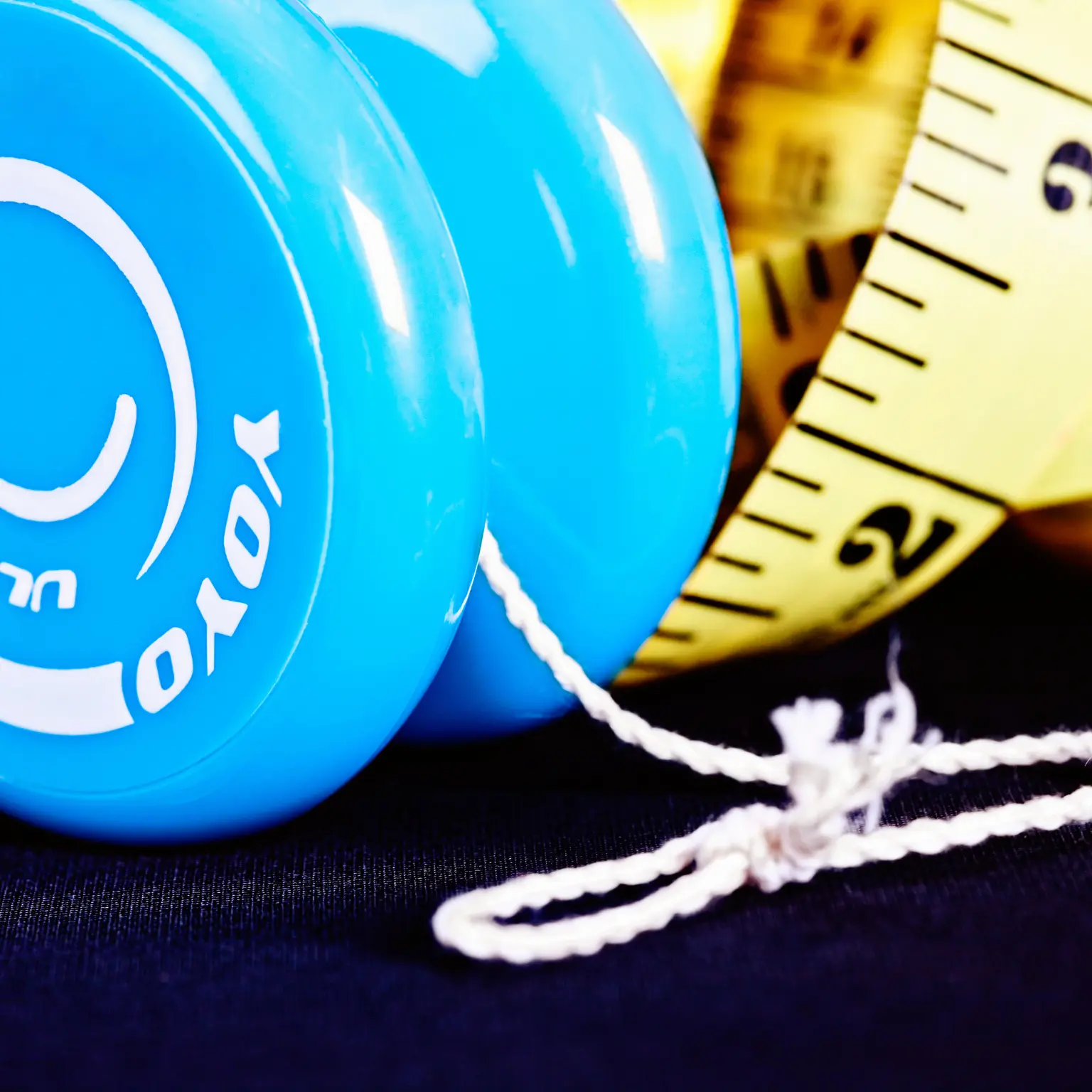10 Proven Weight Loss Tips for Lasting Success

Weight loss is challenging but achievable with patience, dedication, and a willingness to change your lifestyle.
Healthy Stride Wellness offers a unique approach to wellness, prioritizing sustainable habits and long-term success.
Their ten proven weight loss tips are based on science and designed to fit into your real life, focusing on smart choices, building healthy habits, and finding a sustainable path to a healthier you.
Table of Contents
Key Takeaways
- Sustainable Weight Loss: Focus on long-term changes, set realistic goals, prioritize whole foods, practice mindful eating, and incorporate enjoyable physical activity.
- Individualized Approach: Experiment with different strategies, seek support if needed, and be patient and kind to yourself.
- Holistic Health: Prioritize sleep, stress management, and hydration. Enjoy treats in moderation and build a sustainable lifestyle.
Set Realistic Goals and Track Your Progress
Embarking on a weight loss journey without clear goals is like setting sail without a destination – you might end up anywhere. The first tip is to establish realistic goals and diligently track your progress.
The Why Behind Goal Setting
SMART Goals: The acronym SMART stands for Specific, Measurable, Achievable, Relevant, and Time-Bound. Let’s break it down:
- Specific: Instead of saying, “I want to lose weight,” define a precise target like, “I want to lose 10 pounds.”
- Measurable: Quantify your progress. This could involve tracking pounds lost, inches reduced, or body fat percentage.
- Achievable: Set goals that are challenging yet attainable. Losing 20 pounds a week is unrealistic and could lead to discouragement.
- Relevant: Align your goals with your overall health and well-being. Ask yourself, “Why is this weight loss important to me?”
- Time-Bound: Establish a timeframe for achieving your goal. This could be a few weeks, months, or even a year.
Motivation Boost: Tracking your progress provides tangible evidence of your hard work. Seeing those numbers change can be incredibly motivating and keep you on course during challenging times.
How to Set Goals and Track Progress?
- Baseline Assessment: Start by determining your current weight, body measurements, and body fat percentage, if possible.
- Consult a Professional: If you have underlying health conditions, seeking guidance from a healthcare provider or registered dietitian is recommended.
- Goal Setting: Using the SMART criteria, set a main goal (e.g., weight loss) and smaller milestone goals.
- Tracking Tools: Choose a method that suits you best. This could involve a simple notebook, a weight loss app, or a fitness tracker.
- Regular Check-Ins: Schedule regular weigh-ins or progress assessments to monitor your journey and make any necessary adjustments.
Setting realistic goals and diligently tracking your progress will transform your weight loss journey from a vague aspiration into a concrete plan with measurable milestones. This empowers you to stay focused and motivates you to keep going, one step at a time.
Prioritize Whole, Unprocessed Foods
The foundation of any successful weight loss strategy lies in your food. It’s time to ditch the processed junk and embrace the power of whole, unprocessed foods. But what makes these foods special?
The Science Behind Whole Foods
Satiety: Whole foods, such as fruits, vegetables, whole grains, and lean proteins, are rich in fiber and nutrients. Fiber adds bulk to your meals, promoting a feeling of fullness and reducing the likelihood of overeating.
Nutrient Density: Whole foods contain essential vitamins, minerals, and antioxidants that support overall health and well-being. These nutrients are crucial in boosting your metabolism, maintaining energy levels, and promoting weight loss.
Blood Sugar Control: Refined grains and sugary foods cause rapid spikes and crash in blood sugar levels, leading to cravings and energy fluctuations. On the other hand, Whole Foods provides a steady release of energy, keeping you satisfied and preventing those tempting mid-afternoon slumps.
Simple Food Swaps for Weight Loss
Transforming your diet doesn’t have to be overwhelming. Start by making simple swaps:
| Processed Food | Healthy Alternative |
|---|---|
| White bread | Whole-grain bread |
| Sugary cereals | Oatmeal with fruit and nuts |
| Soda | Water, unsweetened tea |
| Potato chips | Air-popped popcorn, veggies |
| Candy bars | Fruit, Greek yogurt |
These swaps reduce your intake of empty calories and provide your body with the nutrients it needs to function optimally.
The Healthy Stride Wellness Tip: Experiment with different whole foods to discover new flavors and textures you enjoy. Don’t be afraid to get creative in the kitchen and try new recipes incorporating these wholesome ingredients.
Practice Mindful Eating
In our fast-paced world, meals often become a hurried affair. We scarf down food while multitasking, barely paying attention to what or how much we consume. This is where mindful eating comes in – a practice that encourages us to slow down, savor each bite, and tune into our body’s signals.
What is Mindful Eating?
Mindful eating is not a diet; it’s a way of approaching food with awareness and intention. It involves:
- Paying Attention: Focus on the present moment, engaging all your senses to experience the taste, texture, and aroma of your food.
- Listening to Your Body: Tune into your hunger and fullness cues. Eat when hungry, and stop when you’re comfortably full, not stuffed.
- Removing Distractions: Turn off the TV, put away your phone, and create a calm eating environment.
- Savoring Each Bite: Chew slowly and deliberately, appreciating the flavors and textures of your food.
How does Mindful Eating help with Weight Loss?
- Reduced Overeating: Slowing down and paying attention makes you less likely to overeat mindlessly.
- Increased Satisfaction: Savoring each bite enhances the enjoyment of food, making you feel more satisfied with smaller portions.
- Emotional Eating Awareness: Mindful eating helps you recognize emotional triggers for eating and develop healthier coping mechanisms.
Techniques for Mindful Eating
- Start Small: Begin by practicing mindful eating during one meal a day.
- Engage Your Senses: Notice your food’s colors, smells, and textures.
- Check In With Yourself: Before, during, and after eating, ask yourself how hungry or full you feel.
- Put Your Utensils Down: Pause between bites to truly savor the flavors.
- Gratitude Practice: Take a moment to appreciate the food and the effort that went into preparing it.
Incorporating mindful eating into your routine can transform your relationship with food. It’s not about restriction; it’s about cultivating a deeper appreciation for what you eat and how it nourishes your body. With practice, mindful eating can become a powerful tool in your weight loss arsenal, helping you make conscious choices and develop a healthier, more balanced approach to food.
Find Enjoyable Exercise
Exercise isn’t just about burning calories; it’s a cornerstone of a healthy lifestyle that can significantly impact your weight loss journey. However, the key is to find physical activities you truly enjoy.
Beyond Weight Loss: The Benefits of Exercise
- Mental Health Boost: Regular exercise releases endorphins, those feel-good chemicals that reduce stress, anxiety, and depression.
- Improved Sleep: Physical activity can help you fall asleep faster and enjoy deeper, more restorative sleep.
- Increased Energy: While it may seem counterintuitive, exercise boosts your energy levels throughout the day.
- Stronger Muscles and Bones: Physical activity helps build and maintain muscle mass and bone density, which is essential for overall health and longevity.
Finding Your Fitness Groove
The best exercise routine is one that you’ll stick with. Experiment with different activities until you discover something that sparks joy and fits your lifestyle. Here are some ideas:
- Dance: Turn up the music and let loose with a dance party in your living room.
- Hiking: Immerse yourself in nature and get a great workout simultaneously.
- Swimming is a low-impact exercise that’s incredibly refreshing and easy on your joints.
- Cycling: Whether on a stationary bike or exploring your neighborhood, cycling is a fun way to increase your heart rate.
- Team Sports: Join a recreational league for soccer, basketball, volleyball, or any sport that interests you.
The Healthy Stride Wellness Tip: Don’t feel pressured to hit the gym if it’s not your thing. There are countless ways to be active and have fun while doing it. The most important factor is finding something you enjoy and can incorporate into your routine consistently.
Get Enough Sleep
Sleep is often overlooked in the weight loss equation, but it plays a pivotal role in your success. While catching those Z’s, your body is hard at work repairing and restoring itself. Adequate sleep is essential for maintaining a healthy weight.
The Sleep-Weight Loss Connection
- Hormonal Imbalance: Sleep deprivation disrupts the balance of hunger hormones leptin and ghrelin. Leptin signals fullness, while ghrelin stimulates appetite. When you don’t get enough sleep, leptin levels decrease, and ghrelin levels increase, leading to increased hunger and cravings.
- Increased Cravings: Studies have shown that sleep-deprived people crave high-calorie, sugary foods. This is due to changes in brain activity that make these foods more appealing.
- Reduced Energy: Lack of sleep zaps your energy levels, making it harder to find the motivation to exercise and make healthy food choices.
- Insulin Sensitivity: Sleep deprivation can also impair your body’s ability to use insulin effectively, which can lead to weight gain and increase the risk of type 2 diabetes.
Tips for Improving Sleep Quality
Prioritizing sleep is a gift you give yourself on your weight loss journey. Here are some tips to ensure you’re getting the rest you need:
- Consistent Sleep Schedule: Go to bed and wake up simultaneously each day, even on weekends.
- Create a Relaxing Bedtime Routine: Wind down before bed with activities like reading, taking a warm bath, or listening to calming music.
- Optimize Your Sleep Environment: Make sure your bedroom is dark, quiet, and cool. Invest in a comfortable mattress and pillows.
- Limit Screen Time Before Bed: The blue light emitted from electronic devices can interfere with sleep. Avoid screens at least an hour before bedtime.
- Watch Your Caffeine Intake: Avoid caffeine in the afternoon and evening.
- Manage Stress: Stress can wreak havoc on your sleep. Practice relaxation techniques like deep breathing or meditation to calm your mind before bed.
By prioritizing sleep and establishing healthy sleep habits, you’ll feel more rested and energized, and your weight loss efforts will be supported significantly.
Manage Stress
Stress isn’t just a mental health concern; it can also derail your weight loss efforts. When stressed, our bodies release cortisol, a hormone that can trigger cravings for unhealthy foods and promote fat storage.
The Stress-Weight Connection
- Emotional Eating: Stress often leads to emotional eating, where we turn to food for comfort rather than nourishment. This can cause overeating and unhealthy food choices.
- Cortisol and Fat Storage: Cortisol, the stress hormone, encourages the body to store fat, particularly around the abdomen. This type of fat is associated with an increased risk of health problems.
- Disrupted Sleep: Stress can interfere with sleep, further exacerbating the hormonal imbalances and cravings associated with sleep deprivation.
- Reduced Motivation: When stressed, finding the energy and motivation to exercise and prepare healthy meals is harder.
Strategies for Stress Management
Managing stress is critical to overall well-being and weight loss success. Here are some effective strategies:
- Mindfulness and Meditation: These practices help you focus on the present moment and reduce anxiety. Even a few minutes of mindful breathing each day can make a difference.
- Yoga: Yoga combines physical postures with breathing exercises and meditation, promoting relaxation and stress reduction.
- Spending Time in Nature: Research shows that spending time in nature can lower cortisol levels and improve mood.
- Exercise: Physical activity is a natural stress reliever. Find an activity you enjoy and make it a routine.
- Connecting with Others: Talk to friends, family, or a therapist about what’s stressing you out. Sharing your feelings can be incredibly therapeutic.
The Healthy Stride Wellness Tip: Experiment with different stress management techniques to find what works best for you. Remember, it’s not about eliminating stress but learning how to manage it effectively. Reducing stress will create a more conducive environment for weight loss and well-being.
Build a Support System
Weight loss can be challenging, and having a strong support system can make all the difference. Surrounding yourself with encouraging people who understand your goals can provide the motivation, accountability, and emotional support you need to succeed.
The Power of Community
- Shared Experience: Connecting with others who are also on a weight loss journey creates a sense of camaraderie. You can share challenges, celebrate victories, and learn from each other’s experiences.
- Accountability: Having someone to check in with can help you stay on track and motivated, even when facing setbacks or temptations.
- Emotional Support: Weight loss isn’t just about physical changes; it can also be emotionally challenging. A supportive network can offer encouragement, understanding, and a listening ear when needed.
Finding Your Tribe
Building a support system can take various forms:
- Friends and Family: Enlist the support of loved ones committed to your success. Share your goals with them and seek their encouragement and understanding.
- Weight Loss Groups: Join online forums, social media groups, or local weight loss programs where you can connect with others who share your goals.
- Professional Guidance: Consider working with a registered dietitian, therapist, or personal trainer who can provide expert advice, support, and accountability.
- Online Communities: Many online platforms offer virtual support groups, forums, and challenges where you can connect with people worldwide.
The Healthy Stride Wellness Tip:
- Don’t be afraid to seek help when you need it.
- Contact your support system for encouragement, advice, or a listening ear.
- Remember, you don’t have to go through this journey alone.
Don’t Deprive Yourself
While adopting healthy eating habits is essential, it’s equally important not to deprive yourself entirely of the foods you enjoy. Completely restricting certain foods can lead to feelings of deprivation, which may trigger binge eating or an unhealthy relationship with food.
Moderation, Not Restriction
The key is to practice moderation rather than restriction. Instead of labeling foods as “good” or “bad,” focus on incorporating a variety of nutritious options while allowing yourself occasional indulgences.
Strategies for Enjoying Treats Guilt-Free
- Planned Indulgences: Schedule specific days or times to enjoy your favorite treats. This allows you to look forward to them without feeling guilty.
- Mindful Indulgence: When you do indulge, savor every bite. Pay attention to the flavors and textures, and truly enjoy the experience.
- Portion Control: Enjoy a small scoop or share a dessert with a friend instead of devouring an entire pint of ice cream.
- Healthier Swaps: Look for healthier versions of your favorite treats. For example, try baked apple chips instead of fried potato chips or dark chocolate instead of milk chocolate.
The Healthy Stride Wellness Tip: Food is meant to be enjoyed. Allowing yourself occasional treats can help you maintain a positive relationship with food and prevent feelings of deprivation. It’s about finding a balance that works for you.
Be Patient and Persistent
Weight loss is not a sprint; it’s a marathon. It’s a journey that requires patience, perseverance, and a commitment to long-term health. There will be ups and downs, setbacks, and plateaus, but the key is to stay focused on your goals and not get discouraged.
Weight Loss Is a Journey, Not a Destination
It’s important to understand that sustainable weight loss takes time. There are no quick fixes or overnight miracles. Embrace the process and focus on making gradual, lasting changes to your lifestyle.
Dealing with Setbacks and Plateaus
- Setbacks are Normal: Everyone experiences setbacks along the way. Don’t beat yourself up if you have a day or a week where you don’t make the healthiest choices. Acknowledge it, learn from it, and move on.
- Plateaus are Temporary: It’s common to hit plateaus where weight loss stalls. This is often due to your body adjusting to your changes. Don’t panic; stay consistent with your healthy habits, and eventually, you’ll break through the plateau.
- Celebrate Non-Scale Victories: Weight loss is not just about the number on the scale. Celebrate achievements like increased energy levels, improved fitness, better sleep, or fitting into smaller clothes.
Shifting the Focus to Long-Term Health
While weight loss is a common goal, it’s important to remember that it’s not the only health measure. Shift your focus from solely achieving a specific number on the scale to cultivating a healthy lifestyle you can maintain for the long haul.
The Healthy Stride Wellness Tip: Be patient with yourself and your body. Celebrate your successes, learn from your challenges, and remember that every small step brings you closer to your goals.
In Conclusion
As you embark on your weight loss journey, remember that a number on the scale does not define success but the sustainable changes you make to your lifestyle. By setting realistic goals, prioritizing whole foods, practicing mindful eating, embracing enjoyable exercise, prioritizing sleep, managing stress, building a support system, staying hydrated, allowing for indulgences, and cultivating patience, you’re setting yourself up for lasting success.
Healthy Stride Wellness believes weight loss is not a one-size-fits-all endeavor. It’s about finding what works best for you and creating a healthy lifestyle that you can maintain for the long haul. By incorporating these ten proven tips into your routine and seeking support from resources like Healthy Stride Wellness, you can achieve your weight loss goals and enjoy a healthier, happier life.
Remember, every step you take, no matter how small is a step in the right direction. Embrace the journey, celebrate your successes, and never give up on pursuing a healthier you.
Want to learn more about weight loss? Check out our in-depth guide on Your First Steps to Weight Loss: A Beginner’s Guide
FAQs
How long does it typically take to see results with these weight loss tips?
The time it takes to see results varies for each individual and depends on various factors, including your starting point, metabolism, adherence to the tips, and individual differences. It’s important to focus on sustainable changes and long-term progress rather than quick fixes.
Can I still enjoy my favorite foods while trying to lose weight?
Absolutely! The key is moderation, not deprivation. Allow yourself occasional treats in controlled portions and savor them mindfully. This approach helps prevent feelings of deprivation and promotes a healthy relationship with food.
Is it necessary to count calories for weight loss?
While calorie counting can be a helpful tool for some, it’s not always necessary. Prioritizing whole, unprocessed foods and practicing mindful eating can naturally lead to a calorie deficit without meticulous tracking. However, if you find calorie counting helpful, it can be a useful strategy.
What if I encounter a weight loss plateau?
Weight loss plateaus are common and often occur as your body adjusts to changes. Don’t get discouraged. Stay consistent with your healthy habits, focus on non-scale victories (like increased energy or improved fitness), and consider adjusting your exercise routine or seeking guidance from a professional.
Can I follow these tips if I have dietary restrictions or allergies?
Yes, these tips can be adapted to various dietary needs. If you have specific restrictions or allergies, consult a registered dietitian or healthcare provider for personalized guidance on making suitable food choices and substitutions.
Please Note: Healthy Stride Wellness provides educational content and is not a replacement for medical advice. Consult a healthcare provider for any health issues.




